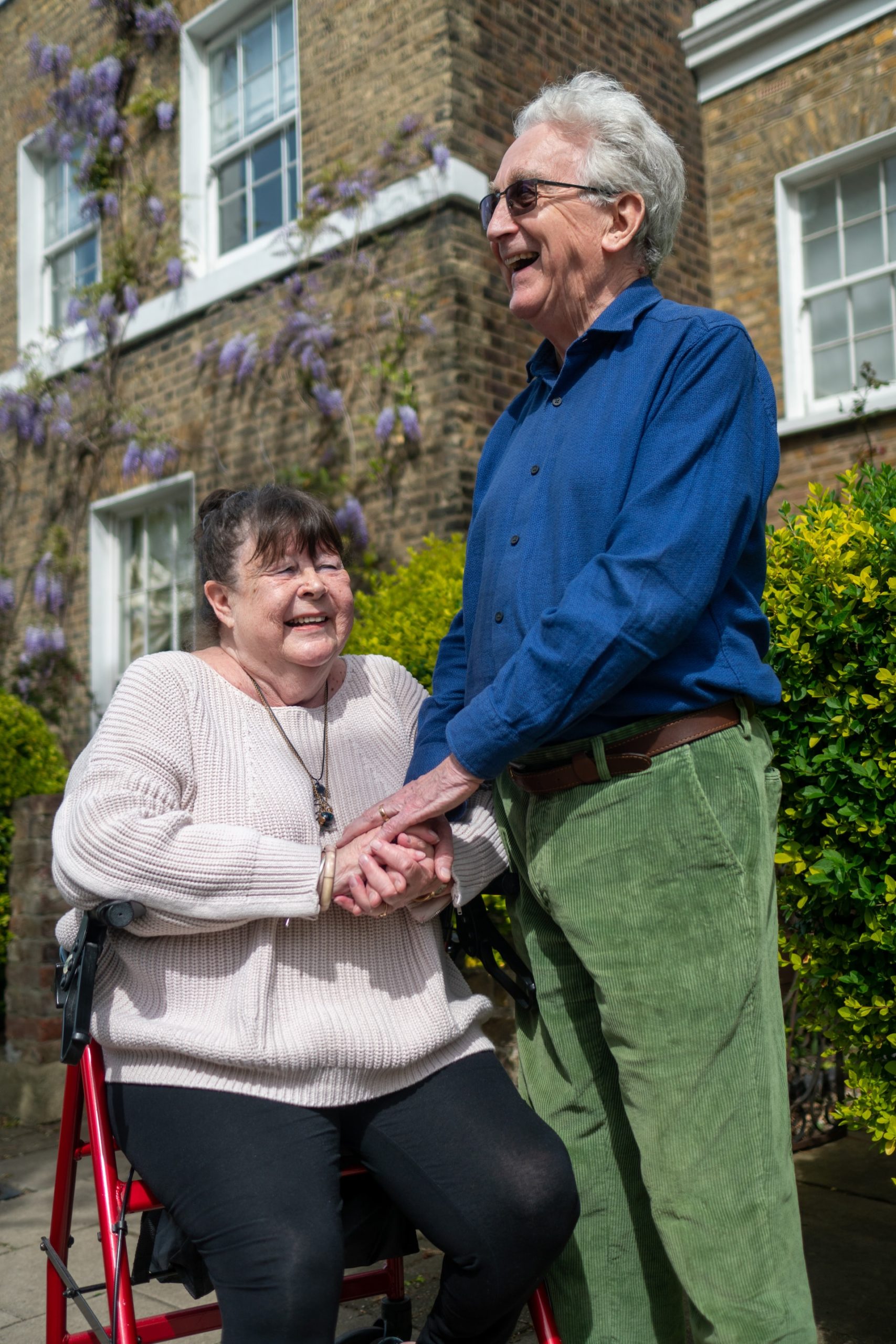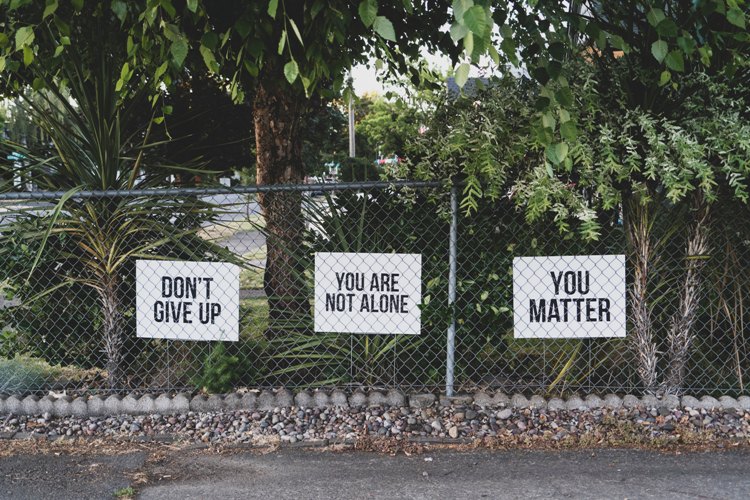Caregiving is one of the most important roles we will ever fill as members of a family and of society. The honor and responsibility of caring for an older generation, possibly those who raised us, or caring for an ill child, makes caregiving a crucial privilege.
Yet, caregiving is an emotional and physically draining job. Long-term stress can take its toll on a caregiver’s health and cause problems in other areas of their life. Knowing the cause and symptoms of caregiver burnout can keep your health at the top of the line while giving your best to your loved one.
 What is Caregiver Burnout?
What is Caregiver Burnout?
According to the Family Caregiver Alliance and AARP, roughly 17 to 35% of caregivers believe their health rates as fair to poor. The longer the person assumes the caregiver role, the worse their physical, emotional, and mental health deteriorates as they prioritize their loved one over themselves.
Caregiver burnout can leave the caregiver feeling emotionally distant and irritable with poor physical health as the body responds to chronic stress. This exhaustion does not mean that you do not love your family member or the person you are taking care of in this season of your life. It is the body and mind’s way of protecting itself from stress as it works to inform you that you are taking on too much.
Caregiver burnout is also felt by professionals who work in the healthcare field. However, there is a difference between caregiver burnout and compassion fatigue. You might feel exhausted, emotionally drained, and depressed with caregiver burnout. This is a long-term effect of caregiving.
Compassion fatigue can come on quickly after you have experienced secondary trauma (such as the death of people under your care or being threatened by family members of your charge). Compassion fatigue attacks your empathy towards others and leaves a sense of detachment.
Caregivers who are trying to juggle other life commitments like a full-time job and family are at a higher risk for burnout and poorer health. This is a sad fact as the average age of a family caregiver is 49.2 years old – an age where health is even more vital as they prepare for the senior years. Yet, in many families, the role of caregiver falls to the adult woman. As many as 66% of family caregivers are women.
 Am I at Risk?
Am I at Risk?
How do you know if you are on the verge of burnout? The following are the frequent signs and causes of burnout you need to be aware of as you care for your loved one:
- Depression
- Anxiety about your responsibilities
- Anxiety regarding the financial burden
- Self-isolation
- Losing interest in your hobbies and things that brought you joy
- Unable to concentrate
- Uncontrolled anger and irritability
- Anger toward the person you are caring for (your charge)
- Guilt for feeling resentment towards your loved one or charge
- Insomnia or sleeping too much
- Risky behaviors, substance abuse, or imbibing too much alcohol
- Changes in eating patterns and rapid changes in weight
- Arguing with your loved one over the role reversal (grown child caring for an aging parent)
- Expecting caregiving to be a rewarding experience (challenging when loved ones suffer)
- Feeling alone in the caregiver role
- Placing too much responsibility on yourself
- Dealing with others who will not share responsibility for the care of a loved one
- Lower immune system and sick more often
- Thoughts of harming your loved one or self-harm
Many of these causes and symptoms are severe, especially if allowed to continue without treatment and support. It is common to feel guilty for taking time out to care for yourself, but your health is just as important as your loved one’s health. You cannot care for anyone if you are not at your best.
You must learn to not only love your neighbor but love yourself. You can still prioritize your own health without sacrificing the care your loved one needs. That might mean you need to ask for help, delegate tasks, take some time off or learn to be flexible in your schedule.
 Can I Prevent Caregiver Burnout?
Can I Prevent Caregiver Burnout?
As with anything, being prepared and preventing burnout before it starts is best. However, if you have been a caregiver for quite some time and feel you are in burnout, know that help is available, and you can make lifestyle and caregiving changes that will alleviate some of the stress.
The following are several tips for preventing caregiver burnout:
Ask for help. Sometimes, pride or ego keeps us from asking for help, but in this case, support is what you need. Try asking other family members to alternate with you. If you are the only person willing to care for your loved one, check in with your local church or your loved one’s church. Many times, friends are eager to take responsibility for several hours so that you can rest or run errands for yourself.
Check on respite care. Respite care brings certified professionals into your home to care for your loved one so that you can have time off. This does not have to be an everyday occurrence (unless you want it to and can afford it). You can hire an agency to send a caregiver once or twice a week.
Conquer 15 minutes at a time. Did you know you can actually accomplish a great deal in 15-minute blocks? Whether cleaning, cooking, laundry, exercising or reading a book, step away and set a timer for 15 minutes. If you cannot leave the bedside of your loved one, what can you quietly do in the room with them? Can you fold laundry, read a book, work puzzles, crochet, or practice yoga stretches? Get creative.
Feed yourself nutritious foods. This is so that you have the energy without the sugar crash to manage your loved one’s care. Try using one day a week to prep easy meals and freeze them. Or make snack bags full of trail mix or fresh veggies and fruit to keep on hand.
 Vent when you need a listening ear.
Vent when you need a listening ear.
Find someone you can lean on who will not judge you on your feelings. Possibly choose a person who has been in your shoes. Caregiving is a tough job, but God knows you are more than capable if you have been given the responsibility. It is okay to vent your frustrations and ask for help. If it is a good friend, you will leave the conversation feeling lighter.
Lean in on God. Now is the time to draw closer to God for strength. You are capable, but you will need God’s power and grace to get you through this season of your life. If you make Him the center of your life, He will give you peace that passes all understanding.
Make your requests known to God and other people who might be willing to help. Protect your mental health, so you can continue to be the loving person God created.
Is There Support Available for Caregivers?
Many communities and local churches offer caregiver support groups that you can join. These groups might consist of adult children caring for aging or terminally ill parents, spouses caring for their husbands or wives, parents dealing with a sick child, or people choosing caregiving as a profession. You can learn a great deal from listening to others.
You can also find caregiver support groups online or through free bulletin board services at your local library or hospital. Ask your friends and family if they know of any support groups in your area.
If you cannot locate caregiver support resources in your area or feel like you are amid caregiver burnout and are dealing with depression, reach out to us today. The counselors at Seattle Christian Counseling specialize in caregiving and aging and geriatric support. God blesses the younger generation when we give our time and love to our families and the older generation. We can help you learn the skills necessary to balance your life and health with the role of caregiver.






